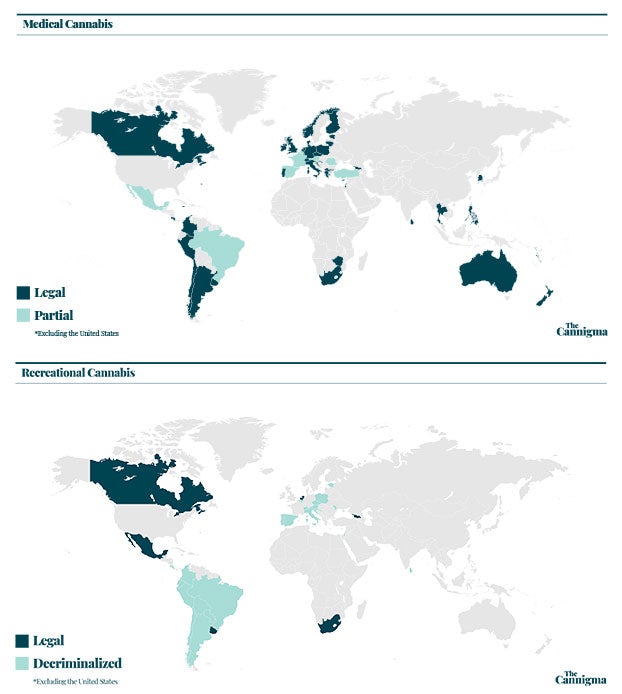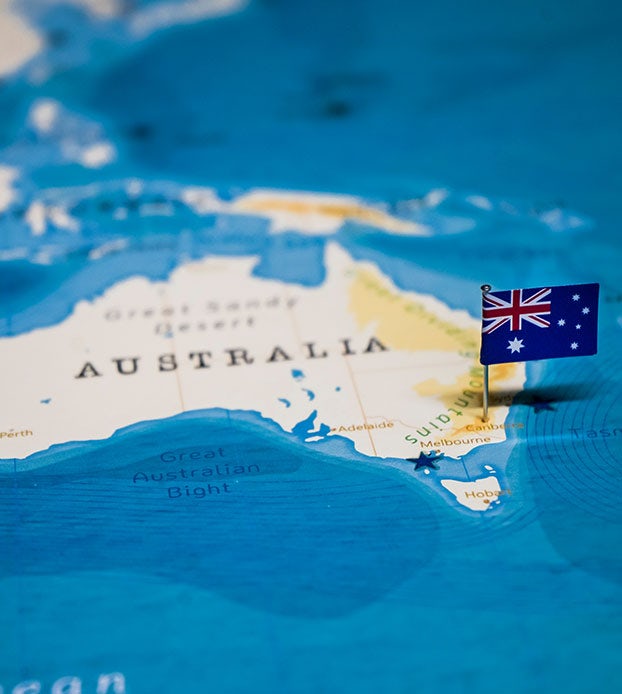- Medical: Legal
- Recreational: Largely decriminalized
Medical cannabis has been legal in Germany since 2017 when the parliament voted unanimously to legalize it and require public health insurers to cover treatment. Today, Europe’s largest country is also the continent’s leading medical cannabis market, with more than 128,000 patients receiving medical cannabis in the country each year, according to Prohibition Partners.
Germany first began legally allowing some use of medical marijuana in 1998, when Dronabinol, a synthetic version of THC, became available as a prescription medication.
Despite Germany’s very expansive medical cannabis program, the country still has not legalized recreational cannabis. Possession, cultivation, import, export, and sale remains illegal in Germany, but people who are arrested with small amounts for personal use (around 6-15 grams) typically don’t face prosecution.
The issue came up for a vote in the German parliament in October 2020, and was roundly rejected by the Bundestag. The country’s largest party, the Christian Demorcatic Union, remains opposed to legalization.
CBD products are legal to use, purchase, and sell in the European Union.

Who can get medical cannabis in Germany?
Ten months after Germany legalized medical marijuana, a total of 13,000 patients applied for treatment, and around two-thirds were approved. While specific figures aren’t known, more than 128,000 patients receive medical cannabis in the country each year, according to Prohibition Partners.
Any physician can prescribe medical cannabis and there is no set list of qualifying medical conditions.
The main indications for medical cannabis in Germany are pain, spasticity, anorexia/wasting, nausea/vomiting, depression, and migraines, according to Prohibition Partners.
The country’s Federal Institute for Drugs and Medical Devices ( BfArM) is considered to have a progressive stance towards medical cannabis.
In addition, Germany’s health insurers provide compensation for medical cannabis, to a sum of 73.7 million euros ($83.7 million) in 2018 alone.
How to get medical cannabis in Germany
To receive medical cannabis in Germany, a prospective patient must receive a prescription from a doctor. The doctor must determine that medical cannabis would help the medical condition in question and that the patient has already tried other treatment methods. There is no set list of qualifying health conditions.
Which medical marijuana products are available in Germany?
There are three main categories of medical cannabis products in Germany. These include cannabis flower, extracts and other “preparations,” and finished medical products like Sativex, Dronabinol, and Nabilone.
The maximum amount of cannabis a doctor can prescribe is capped at 100,000 milligrams per 30 days.
Medical cannabis prescriptions are filled at pharmacies that carry medical marijuana.
Join The Cannigma Directory
What does medical marijuana cost in Germany?
MJBizDaily reported in 2019 that the wholesale price of medical cannabis is on average 2.3 euros per gram, and that retail prices can hover around 20 euros per gram. The high prices were blamed at the time on the low number of suppliers, a required pharmacy markup of around 100%, and a shortage of domestic suppliers — which requires the costly import of cannabis.
Since then, new regulations have removed the markup and imports have soared, reducing the costs for medical insurers.
Cannabis still remains far more expensive in Germany than in the neighboring Netherlands, but this may change soon.
Sign up for bi-weekly updates, packed full of cannabis education, recipes, and tips. Your inbox will love it.

 Shop
Shop Support
Support




















